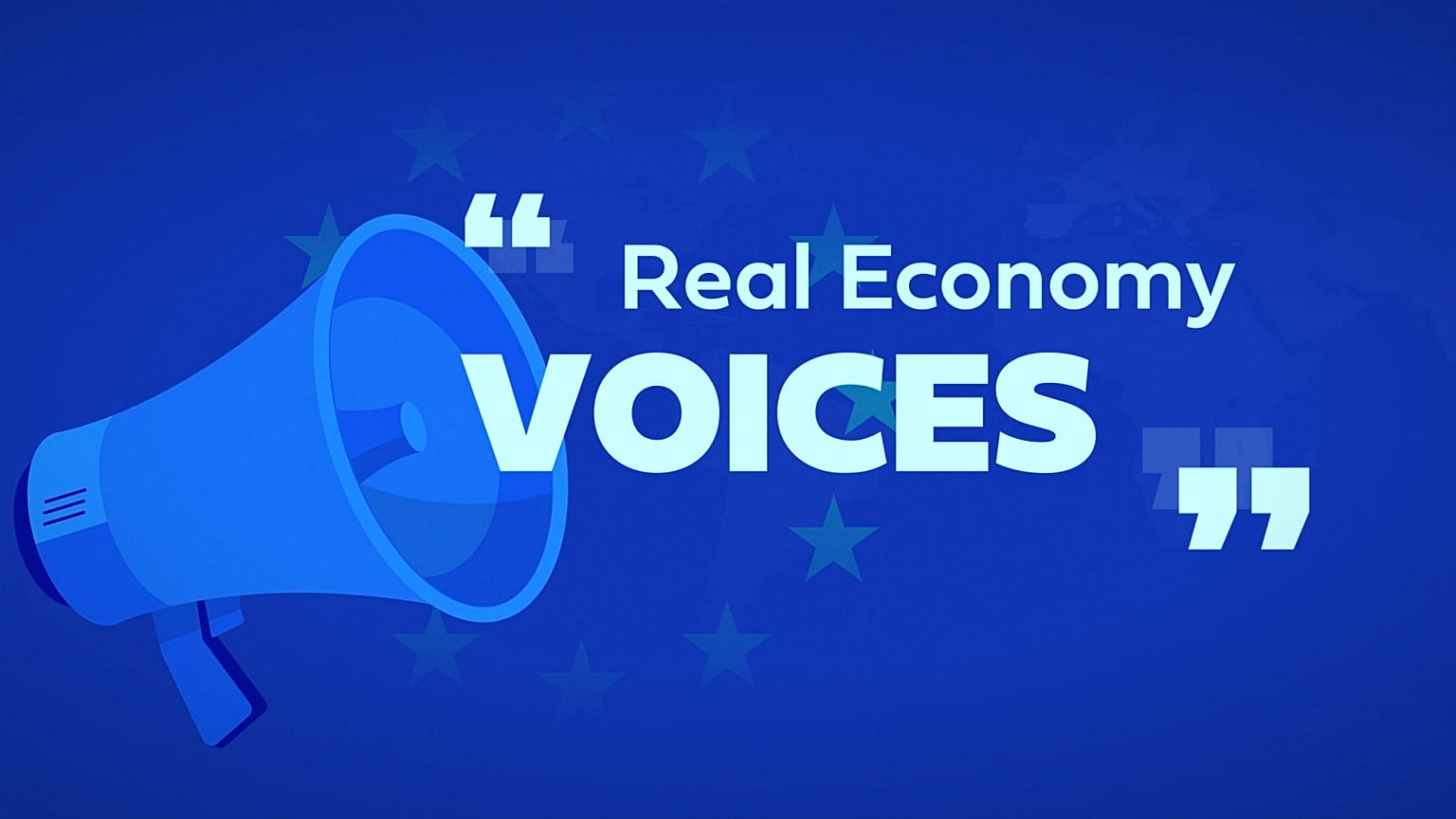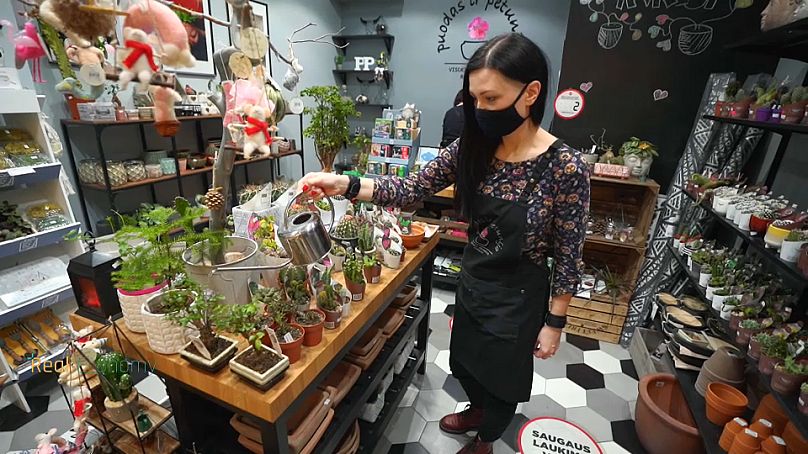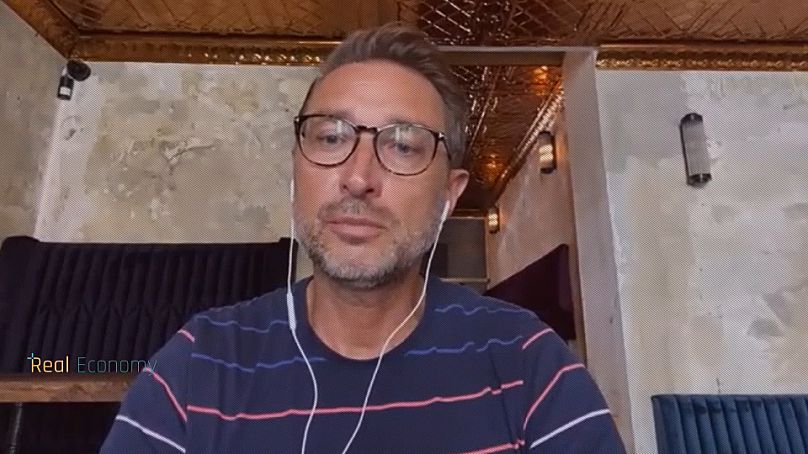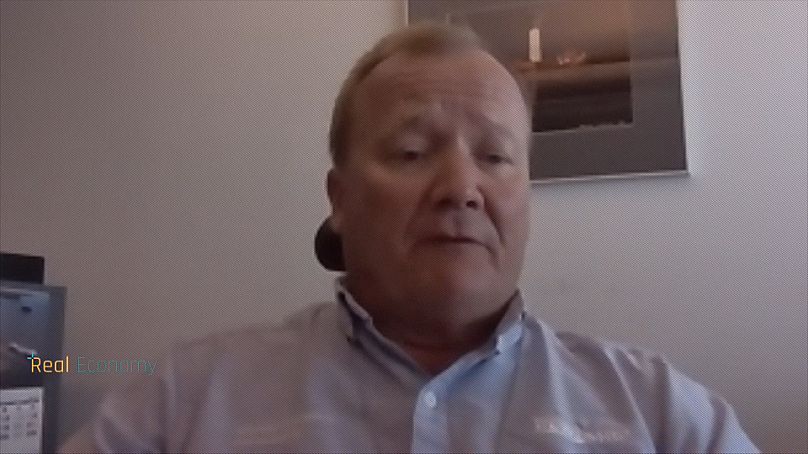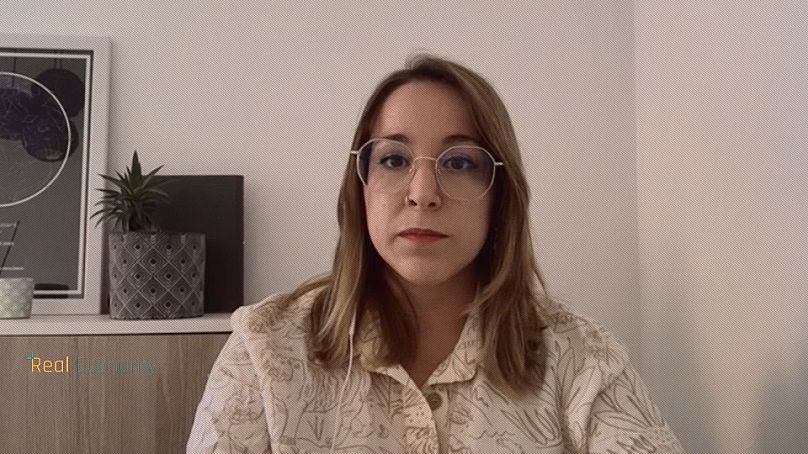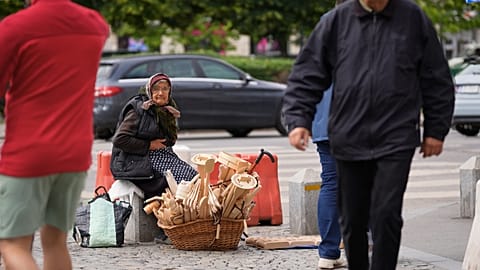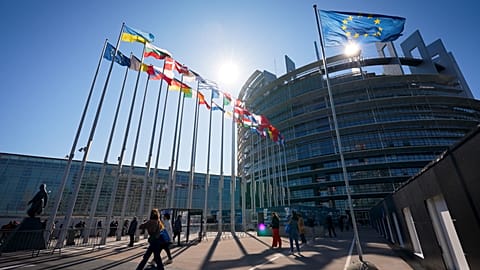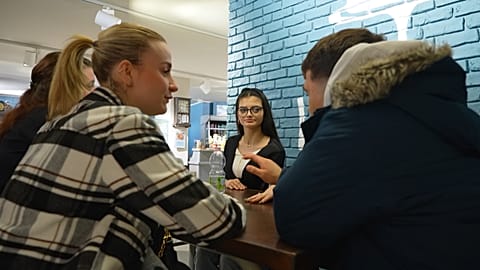Where are they now? We talk to business owners from previous episodes of Real Economy to see whether their companies are still managing through the pandemic and how EU aid has helped in the long term.
Real Economy first met Dovile Ambrazeviciute and her sister Kristina, who run a plant shop in Lithuania’s capital Vilnius, during the country’s second lockdown.
Thanks to government financial support and the EU’s SURE scheme, they were able to pay their employee and part of their rent and had even managed to open a second plant shop.
Now things are looking less positive.
"Our biggest concern is that we will not survive, actually, because we have debts, large debts and the economy is quite slow," says Dovile.
After opening the second shop, they stopped being eligible for government support.
"We are grateful very much for our support for our salaries for employees, but we didn't get any support for our fixed prices, such as rent, which is huge here," she explains.
"What we would like from Europe is more similar rules to all the countries and all the businesses, no matter where we are located."
Staffing problems
In Slovenia’s capital Ljubljana, Real Economy met Greg Yurkovich who runs two pizza restaurants and was able to keep on his 30 employees, thanks to the government and the EU’s SURE aid.
Now he says he is struggling to find staff.
"The issue for us is there's a shortage of employees everywhere in the hospitality industry," says Greg. "The employees that we had on furlough came back. The issue for us is the ones that had maybe left the workforce and are still continuing to get some sort of a financial benefit from the state," he continues.
"How will you motivate people to become reactivated and to maintain a motivation to grow the economies and the sort of the small to medium businesses?"
Sourcing moves closer to home
In Helsinki - Bengt Westerholm is the CEO of one of Finland’s largest privately-owned freight companies.
When Real Economy met him back in December 2020 most of his sea and container freight was stuck in China.
"We still have a lot of the air freight down", Bengt tells us. "We still see some sea freight rates from the Far East to Europe that are actually fivefold or even the toughest I saw last week was tenfold to what it was two years ago."
"We see a lot of Finnish companies now actually looking for opportunities to have their suppliers and have their sourcing done in Europe or closer to Europe because now we all see the risk."
Climate change concerns
After losing her job during the pandemic, Laura Cardenas Corrales, based in Barcelona, took her graphic design work online.
She says work is going well. Her concern is climate change.
"I am personally concerned about climate change. So I support the fact the European Union is focussing on this topic," she says. "I would like to know if in the future they plan to help new businesses, entrepreneurs and others to carry out more sustainable projects or give some kind of incentive or help them in some way so that all of their systems become more environmentally friendly."













